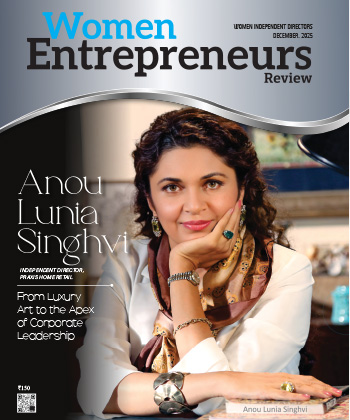
1/3rd Indian STEM Conferences have Low Female Participation
By: WE Staff | Wednesday, 15 November 2023
According to reports, only men speakers have participated in 35 per cent of Science, Technology, Engineering, and Mathematics (STEM) conferences held in India over the last three years. In India, there are more male researchers than female researchers in STEM fields, but the underrepresentation of female researchers is particularly noticeable at the respective conferences.
June 2020 till December 2021 was the period when volunteers were recruited by neuroscientist Shruti Muralidhar, based in Toronto, Canada, and cell biologist Vaishnavi Ananthanarayanan, at the University of New South Wales in Sydney, Australia, to search through publicly accessible data from Indian university websites. They discovered that, across 98 Indian universities and institutes, women make up just 16.7 per cent of the STEM faculty on average. With 22.5 per cent of the total, biology had the highest participation of women, while engineering had the lowest, with only 8.3 per cent. In contrast, a 2019 study discovered that between 33 per cent and 54 per cent of the faculty members in the public health departments of the top 15 special science and public health universities in the world are women. These universities are located in the United States, the United Kingdom, and Canada.
In the elite universities and institutions of India, this gender gap is prominently visible. With a median of about 10 per cent, the eight top-ranked universities in the Indian National Institutional Research Framework 2022 rankings had a lower percentage of female faculty members than average.
According to a representative of the highly regarded Tata Institute of Fundamental Research (TIFR) in Mumbai, India, the reasons for this underrepresentation are multifaceted. They also mentioned the efforts made by the Institute to inspire women to pursue their careers in research. "TIFR has gender-neutral hiring practices and evaluation procedures for scientists and academicians," the organization stated.
Most Viewed
- 1 Women's Health Startup HerMD Closing Doors Amid Industry Challenges
- 2 5 Famous Women in Indian Armed Forces
- 3 Saudi Women No longer Require Male Permission for Clothing Choices, says Prince MbS
- 4 Kolkata Medtech Startup Innovodigm Raises Rs 5.5 Crore Seed Funding Led by IAN Group
- 5 Yamunanagar's Kashish Kalra Honoured after Securing 111th Rank in UPSC Civil Services Exam
- 6 Madurai Appoints Its First Woman Corporation Head
- 7 IAS Vijayalakshmi Bidari Appointed as the new Nagpur Divisional Commissioner
- 8 American Entrepreneur Lucy Guo Overtakes T Swift to become Youngest Female Billionaire
- 9 ICC Women's World Cup 2025 Trophy Showcased at Indore's Holkar Stadium
- 10 Aparna Saxena's Beauty Venture AntiNorm Launches in India
- 11 Vidya Nataraj Co-Founded BlueStone Jewellery & Lifestyle files IPO
- 12 5 Women Freedom Fighters of India
- 13 Dr. G Krishnapriya appointed as CEO for Trichy
- 14 M3M & Sirona Partner to Introduce Menstrual Hygiene Vending Machines in 15 Locations
- 15 Punjab Govt launches SHE Cohort 3.0 Supporting Tech-led Women Startups
- 16 Indian origin Lawyer, Sweena Pannu appointed as the US New Superior Court Judge
- 17 The Aurora Tech Award recognizes 4 Indian Women-led Startups
- 18 Kerala's Republic Day parade featured an all-female tableau
- 19 Manisha Kabbur Becomes Karnataka's First Woman International Karate Coach
- 20 Director K. S. Ravikumar's Daughter Maalica Ravikumar Launches Life Coaching Company 'Evergrowth Academy' for Women
- 21 Leezu's Raises Pre-Seed Funding to Accelerate Growth in Sexual Wellness Industry
- 22 Sattu: Super-easy summer drink for PCOS gut healing
- 23 Swathi Nelabhatla creates Sitha App, India's First Women-Exclusive Gig Platform
- 24 7 Timeless Female Kathak Dancers & their Iconic Legacies
- 25 Meet 7 Iconic Women Architects of Modern India & their Most Impactful Work
- 26 This Woman-led Insuretech Startup is Helping Bridge the Education Financing Gap in India
- 27 Women Leaders Share Lessons Learnt from India Women's WC Win
- 28 5 Enterprising Women Founders Powering Singapore's Tech & Innovation Landscape
- 29 4 Women. 4 Stories. One Vision for Smarter, Stronger Healthcare
- 30 Global Gender Gap Narrows to 68.8%, But Full Equality 123 Years Away: WEF Report 2025
- 31 Changemakers: 7 Women Entrepreneurs Taking the Make in India Movement Forward
- 32 Meet Lucy Guo, The Youngest Self-Made Female Billionaire Disrupting Tech
- 33 How Women are Driving India's Festive Online Shopping Surge






